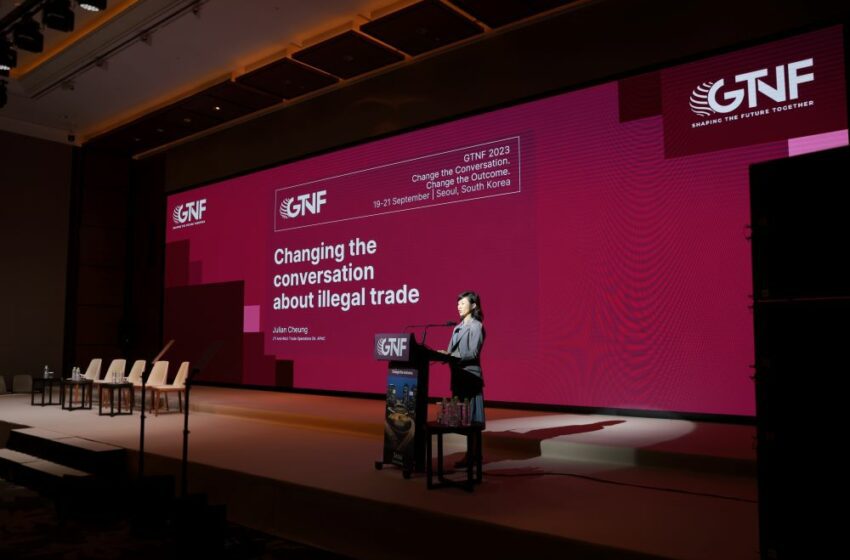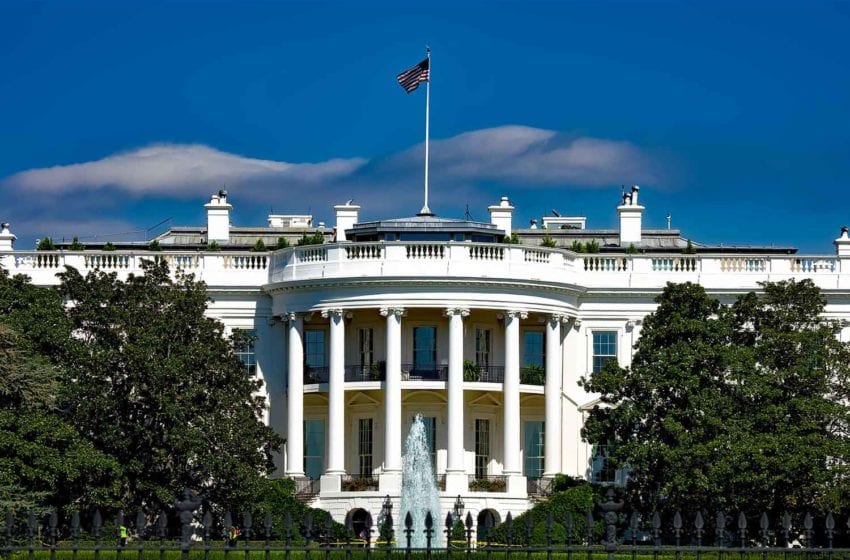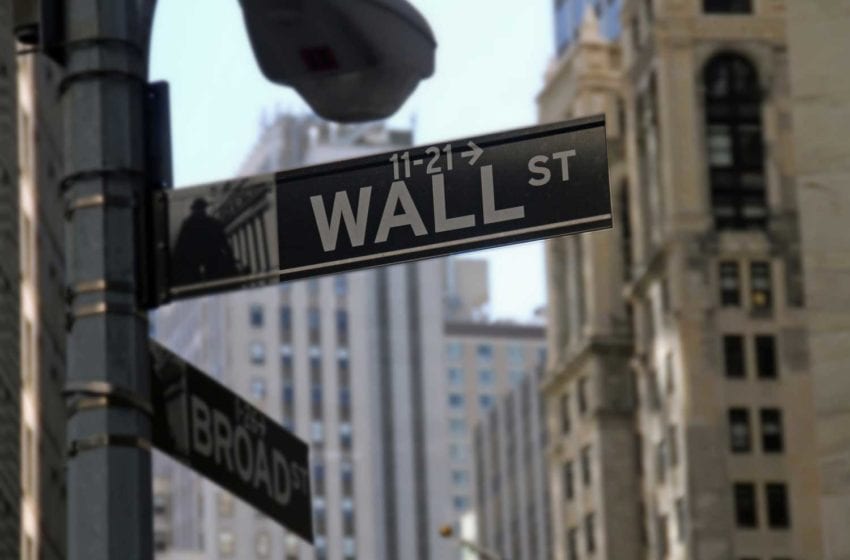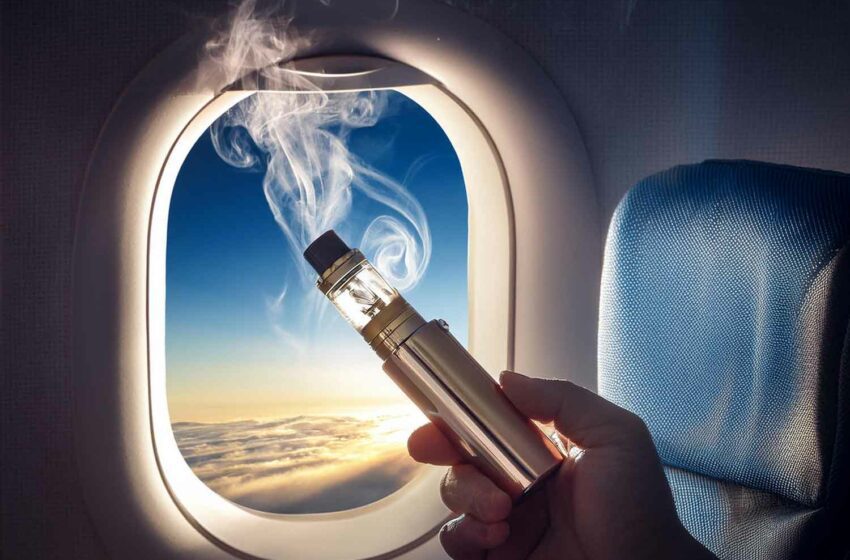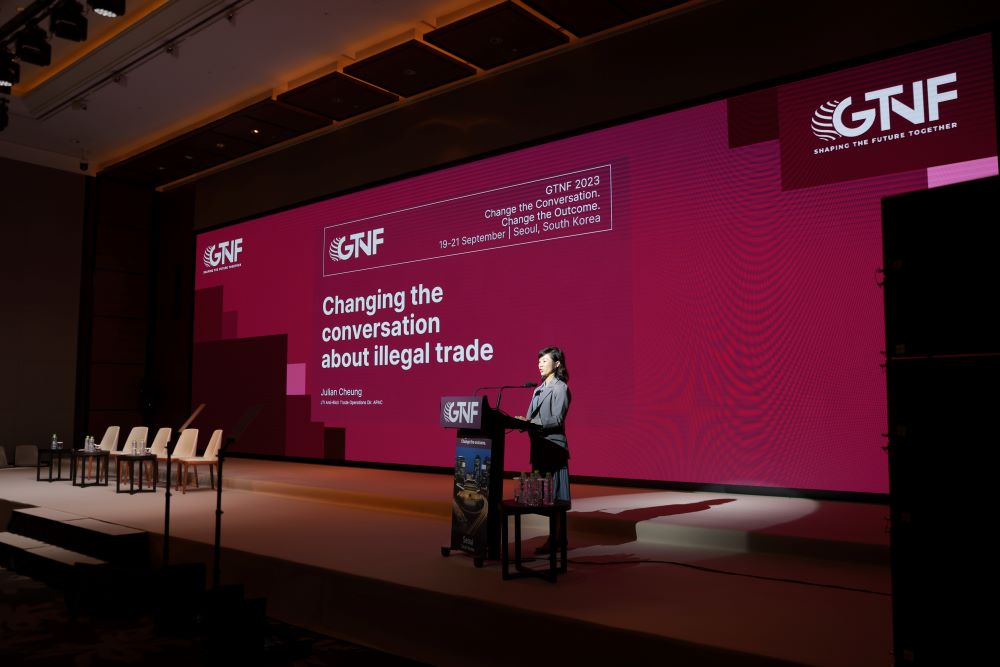
The combination of substantial potential profits and low risk that has fueled the illicit cigarette trade is now also driving criminals’ interest in new nicotine products.
By Stefanie Rossel
Globally, the illicit cigarette trade is a growing problem. Recently, criminals have expanded into contraband novel nicotine products as well. Tobacco Reporter spoke about this topic with Julian Cheung, who is anti-illicit trade operations director for Japan Tobacco International’s Asia-Pacific region. Before working with JTI, Cheung worked for the Independent Commission Against Corruption in Hong Kong, bringing much experience to the subject of anti-illicit trade. JTI works closely with law enforcement agencies to stop illicit trade, according to Cheung.
Tobacco Reporter: Could you please provide an overview of the current illicit cigarette market in the Asia-Pacific region? What are the hot spots, and which shifts have you recently observed?
Julian Cheung: Over the past decade, the Asia-Pacific region has experienced remarkable economic growth. In parallel, there has been growth in illicit trade. Illicit consumption of tobacco products is primarily fueled by a surge in illicit whites,[1] which are mass-produced in countries like Indonesia, Vietnam, China and the United Arab Emirates. These illicit whites often bear well-known brand names within their regions but remain absent from legal retail channels.
Smuggling networks use these leaky borders to transport illicit tobacco. The Thailand-Cambodia, Vietnam-China, and Eastern Malaysia-Indonesia borders are typical examples of areas where smugglers skillfully evade checkpoints or capitalize on remote and unmonitored regions for their unlawful activities.
How does the current illicit cigarette market in the region compare to 10 years ago, and which developments do you anticipate in the near future?
The market for counterfeit products in Southeast Asia is worth approximately $35 billion annually, with $3.3 billion in tax revenue lost annually from smuggled cigarettes, according to a 2020 report by the EU-ASEAN Business Council and the Transnational Alliance to Combat Illicit Trade.2
The reality is that criminal organizations see tobacco as a high-profit, low-risk source of revenue. The criminal groups are incredibly adaptable and highly motivated. In Europe, they are moving counterfeit cigarette production closer to high-value markets such as France and the U.K. Another example of how quickly criminals adapt their operations to a changing environment is a steep increase in online sales of illicit cigarettes after pandemic-related restrictions were introduced. Despite the restrictions no longer in place, this shift toward online commerce remains, making it hard for consumers to tell the difference between genuine and counterfeit products.
The high taxes imposed on tobacco products and then evaded by criminals allow them to gain massive profits at the expense of nations and their citizens. Unfortunately, we do not expect illicit trade issues to be solved completely in a mid-term perspective. However, through innovative strategies, cooperation with international and national law enforcement agencies and a focus on disrupting the financial foundations of these criminal networks, we can curtail the illegal tobacco trade and safeguard our communities and economies.
What can legislators do to prevent illicit trade?
Evidence shows that higher taxes drive consumers to seek cheaper alternative products, such as those sold through illegal trade. We warn governments about the consequences of steep and sudden tax increases.
For example, in Malaysia in 2015, an excise tax hike drove prices up by 42 percent compared with the previous year. The hike immediately pushed the illegal cigarette market share to 52 percent in 2016 from 37 percent in 2015. The long-term impact was that illegal products constituted almost 60 percent of cigarettes consumed in 2022, and Malaysia remains one of the countries with the highest level of illicit cigarette consumption worldwide.
At the GTNF last September, you called for greater cooperation between the industry, governments and law enforcement agencies. What could such cooperation look like?
Illegal trade cannot be dealt with in isolation. We work with governments, regulators, police and customs to crack down on illegal trade and criminality by sharing information and developing specific programs. We do this to protect our customers, businesses and brands.
Better intelligence sharing between public and private partnerships, including the tobacco industry and law enforcement agencies (LEAs), is critical to tackling illegal trade.
JTI engages with, and provides information to, law enforcement and other government agencies globally. For example, we have built a good working relationship with the European Anti-Fraud Office and law enforcement agencies across Europe to share industry expertise and information on all aspects of the illegal trade: criminal operations, locations and trends.
We also provide various LEAs globally with anti-illicit trade awareness sessions, including counterfeit recognition training, information on evolving trends, modus operandi and actionable information on multiple aspects of illegal trade.
In August [2023 to] September 2023, my team supported law enforcement in Malaysia and the Philippines, who seized 37 million illicit cigarettes in successful enforcement actions.
In how far would closer collaboration between individual tobacco companies operating in the region be helpful?
While tobacco companies in the region already work together, we recognize that we need a more unified approach and cohesive voice so we can make a more significant impact in supporting authorities in the fight against illegal trade.
One example of the industry’s collaborative efforts is the Empty Pack survey. This survey, conducted quarterly or annually in selected countries across the Asia-Pacific, helps assess illicit cigarette prevalence in overall tobacco consumption. By evaluating the effectiveness of anti-illicit measures based on facts and evidence, authorities can adopt and fine-tune appropriate regulations to protect consumers and society from criminal groups that deprive state budgets of tax revenues.
We are also involved in cooperation platforms like the Tobacco Association, which engages with authorities, advocating for protecting rights of legitimates businesses, particularly regarding tobacco-related policies and regulations. Using this platform, we also work with other tobacco companies to exchange information, experiences and best practices to share with authorities to help curb illegal trade.
At the GTNF, you said that in order to eliminate the illicit cigarette trade, it’s important to follow the money. What would be an effective strategy to tackle the problem?
The main driver of all illegal trade, but especially the illegal tobacco trade, is the ability of crime groups and individuals to generate huge illegal profits with very little deterrent. Across the globe, there is an increase in enforcement activity focusing on confiscating the proceeds of crime. However, more needs to be done; criminals especially do not like it when “they are hit in the pocket.” There is a very low imprisonment rate for people charged with tobacco-related smuggling offences—and even if they do receive jail time, it is taken as an occupational hazard. So, it is very important for LEAs and other government agencies to follow the money and infiltrate the complex world of money laundering and other criminal activities linked to these groups. Investigating these connections is essential to disrupt their criminal operations.
For example, in July 2023, Malaysia’s Multi-Agency Task Force launched a major investigation into a prominent businessman with ties to local politicians and celebrities using these very methods. The arrested businessman, identified as the mastermind behind various criminal activities including cigarette smuggling operations, was apprehended during a series of well-coordinated raids.
This high-profile and complex case was investigated, with authorities employing the Anti-Money Laundering and Anti-Terrorism Financing Act and the more conventional Anti-Smuggling Act.
Do you have examples of instances where a government successfully curbed illicit cigarette trade? What could we learn from those examples?
Intelligence and research show that the main drivers for illegal trade are steep and sudden tax increases, making legal tobacco products less affordable and pushing consumers to seek cheaper alternatives. That is why balanced, reasonable and predictable taxation are prerequisites to curbing illicit trade.
The illegal tobacco trade is, by nature, a transborder crime, with illegal cigarettes smuggled into a country and quite often with legitimately declared transit goods. While countries like Taiwan, Malaysia or Singapore recognize the economic benefits of being a transshipment hub, criminal groups exploit these hubs for their illicit activities. The following are a few examples of where government action was successful:
- Taiwan: Illegal tobacco smuggling often takes place through containers, utilizing a carousel-like approach to evade detection by law enforcement authorities. The Taiwan government has taken significant measures in this regard and has successfully intercepted containers suspected of carrying cigarettes with incorrect declarations while transiting through Taiwanese ports.
- Malaysia: Starting in January 2021, the Malaysian government took action to address the widespread diversion of illegal cigarettes within the country. As part of this effort, a policy was implemented to restrict the transshipment of cigarettes to five designated ports in Malaysia. This policy successfully reduced smuggling activities at these ports by strengthening control and monitoring measures related to the illicit tobacco trade. By doing so, the government aimed to safeguard its revenue and protect against losses.
- Singapore: Being the world’s second-busiest container port and largest transshipment hub, Singapore’s strategic position also attracts criminal activities. Starting from 2024, the Singapore government will implement a new licensing regime in phases and enhance the enforcement powers of customs officials. These measures aim to prevent smugglers from exploiting the free trade zones and ensure the security and integrity of these areas from illegal activities.
Criminals have also started targeting reduced-risk nicotine products (RRPs). Can you please describe your findings in this regard?
Currently, national regulations on RRPs vary from market to market and are even nonexistent in many countries, leaving room for illegal trade to operate in a gray area. For example, Taiwan has banned the sale of e-cigarettes but allows the sale of heat-not-burn sticks and devices. There are a lot of relatively new products, such as disposable vapes, coming into markets, and it is often not clear to enforcement officers what is legal and what is not. So apart from better regulation, there is an education factor often required for the officers charged with enforcing the law. Unfortunately, organized crime groups are exploiting either the lack of clear regulation or legislation or the confusion within enforcement authorities regarding the various products.
Since RRPs are a relatively new category, illegal product distribution through online channels—including websites and instant messengers—gained significant popularity and widespread adoption, especially in the wake of the Covid-19 pandemic.
The increase in online sales presents a challenge for law enforcement officials because of cross-border distribution and the ability to conceal the IP host. This makes it difficult to identify and track the source of the products. These challenges are even more pronounced due to the limited resources available to many governments.
Australia is probably a special case: Its strict regulation of tobacco products has contributed to the emergence of a black market for cigarettes. Now it has adopted a tough stance on vaping products too. What is this doing to illicit trade in the country?
The less affordable legal cigarettes are, the higher the demand [is] for illegal products from consumers. The cost of a pack of cigarettes in the country is well over AUD40 ($26) and can be twice as much as an illegal pack, making it a lucrative market for criminal tobacco operations.
To safeguard tax revenue and combat the negative impact of illegal trade, the Australian government has taken several measures. The Australia Border Force—custom—established the Illicit Tobacco Taskforce, which collaborates closely with industry stakeholders and ASEAN’s customs. Through information sharing and best practice exchanges, they target tobacco smuggling and protect Australia’s interests.
However, cracking illegal operations takes a lot of time and effort as criminal groups have constantly changed tactics. For example, smugglers have recently started breaking down consignments into smaller units to make detection and enforcement more challenging.
As for the government’s position on a regulation on reduced-risk products, effective January 2024, Australia has implemented a ban on importing disposable vapes. However, history shows that such bans always have dangerous side effects, as seen in South Africa, where the illicit market boomed in 2020 following a temporary ban on cigarettes. An effective ban on disposable vapes will potentially create an illegal or black market that organized crime groups could exploit. This situation poses risks to consumers who may unknowingly purchase counterfeit or substandard products.
1 “Illicit whites” are cigarettes manufactured by legitimate businesses that are smuggled to the markets outside the jurisdiction where they are produced and then traded illegally without any relevant duties being paid, causing a loss of revenue to governments and legitimate retailers.
2 www.tracit.org/uploads/1/0/2/2/102238034/illicit_trade_paper_final_final.pdf


